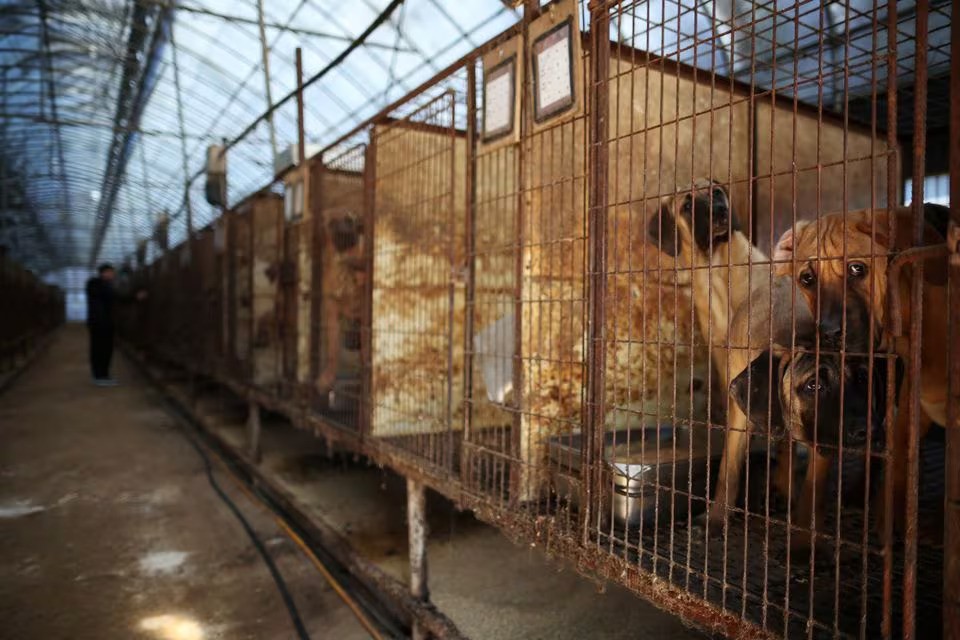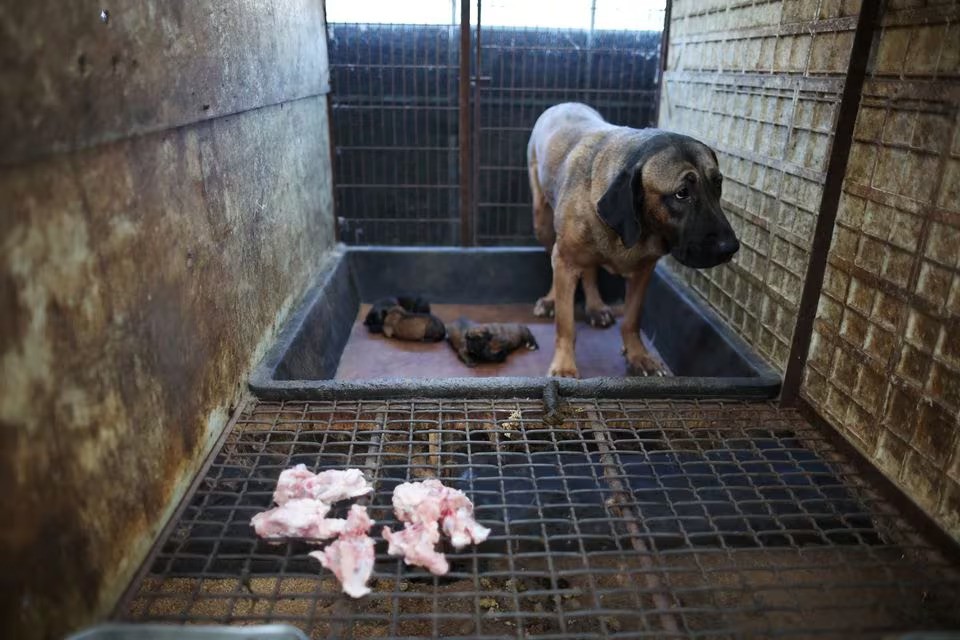South Korea Approves Bill To Prohibit The Consumption Of Dog Meat
South Korea approves bill to prohibit the consumption of dog meat. The bill prohibits the breeding and slaughter of dogs for consumption, bringing an end to the longstanding and controversial practice of consuming dog meat.
Author:Paula M. GrahamReviewer:Hajra ShannonJan 09, 20245.3K Shares155.9K Views

South Korea approves bill to prohibit the consumption of dog meat. The bill prohibits the breeding and slaughter of dogs for consumption, bringing an end to the longstanding and controversial practice of consuming dog meat. This landmark decision reflects a notable shift in attitudes towards the traditional practice, garnering rare bipartisan support across the country's politically divided landscape.
The legislation not only outlaws the distribution and sale of food products containing dog ingredients but also imposes penalties on those involved in the industry, such as dog farmers or sellers. Customers who consume dog meat or related products, however, will not face punishment.
Under the new law, individuals involved in slaughtering dogs for food could be subjected to up to three years in prison or fined up to 30 million Korean won (approximately $23,000). Those engaged in breeding dogs for consumption or knowingly participating in the acquisition, transportation, storage, or sale of food made from dogs may face lesser fines and prison sentences.
This significant development reflects the changing societal norms surrounding the consumption of dog meat in South Korea, marking a departure from traditional practices in the wake of the country's rapid industrialization.
Owners of farms, dog meat restaurants, and other individuals involved in the dog trade will be granted a three-year grace period to either close down or transition their business, as outlined by the committee. Local governments are mandated to provide support to these business owners to facilitate a stable transition to alternative ventures.
The final approval of the bill now rests with President Yoon Suk Yeol. The main opposition party and Yoon's ruling party jointly proposed this legislation, which has received strong support, including First Lady Kim Keon Hee's vocal endorsement. Her advocacy for the bill is evident, considering her ownership of multiple dogs and her visit to an animal protection organization during a presidential state visit to the Netherlands in December.
South Korea, akin to certain regions in Vietnam and southern China, has a historical practice of consuming dog meat. Traditionally perceived as a means to combat the summer heat and as a cost-effective source of protein during periods of higher poverty rates, the cultural perspective on dog meat consumption is transforming with the passage of this legislation.
According to the Ministry of Agriculture, Food and Rural Affairs, South Korea currently has approximately 1,100 dog farms dedicated to food production, housing around half a million dogs. However, the practice of raising dogs for consumption has faced growing criticism in recent decades, with animal rights activists, particularly international groups like Humane Society International (HSI), actively working to rescue dogs from these farms and relocate them abroad.
In addition to increased scrutiny from activists, the consumption of dog meat has witnessed a significant decline within South Korea. The shift can be attributed in part to the rising prevalence of pet ownership, particularly among younger, urban populations.
A 2022 survey by Gallup Korea revealed that 64% of respondents were opposed to eating dog meat, showcasing a noteworthy increase from a similar survey conducted in 2015. Moreover, the survey indicated a substantial decrease in the number of respondents who had consumed dog meat in the past year, dropping from 27% in 2015 to just 8% in 2022.
Official statistics from the period between 2005 and 2014 further underline the changing landscape, revealing a 40% reduction in the number of restaurants serving dog meat in the capital city, Seoul, due to declining demand. This trend reflects the evolving attitudes of the South Korean population towards the consumption of dog meat.
"Our perception of dog meatconsumption and animals, in general, has been changing over the last decades," said Lee Sang-kyung, campaign manager of the dog meat ban at HSI Korea.
“„It was once popular when our food resources (were) scarce, such as during the Korean War, but as the economy develops and people's perception towards animals and our food consumption, food choices, and things change, then I think it's the right time to move with the times.”- Lee Sang-kyun
He emphasized that the bill's passage on Monday was partially the result of increased political fervor, a momentum that had the First Lady's active support and interest.
However, the bill has encountered strong opposition from dog farmers and business owners, who argue that it will severely impact their livelihoods and cultural traditions. In a notable demonstration of dissent, numerous dog farmers and breeders convened outside the presidential office in Seoul in November to protest the bill.
Some of the protesters even brought caged farmed dogs with the intention of releasing them at the scene, leading to scuffles between the farmers and the police, resulting in the detention of some protesters.
One such dog farmer, Lee Kyeong-sig, said last November: "If I have to close down, with the financial condition I'm in, there really is no answer to what I can do … I've been in this for 12 years and it is so sudden."
In a November press release, the Korean Dog Meat Association accused the government of jeopardizing the industry, claiming that it was "threatening to trample" on their livelihoods. The association further alleged that the bill was proposed "without a single discussion or communication" with dog meat consumers or workers.
"No one has the right to rob 10 million (dog meat consumers) of their right to food and the right to survival of 1 million livestock dog farmers and workers," it said in the news release.
Yet, according to Lee, the manager at HSI, there is optimism that the grace period and accompanying relief measures in the bill will provide crucial support to keep dog farmers financially afloat.
Conclusion
“„Based on our experience talking to industry workers at HSI, we knew that the majority of dog meat farmers and slaughterers, they want to leave the industry but they don't know how to leave the industry. But now with the bill, having a compensation package (and) financial support from the government, I think it\s the right time to leave the industry for them as well.- Lee Sang-kyun
Jump to

Paula M. Graham
Author

Hajra Shannon
Reviewer
Latest Articles
Popular Articles
